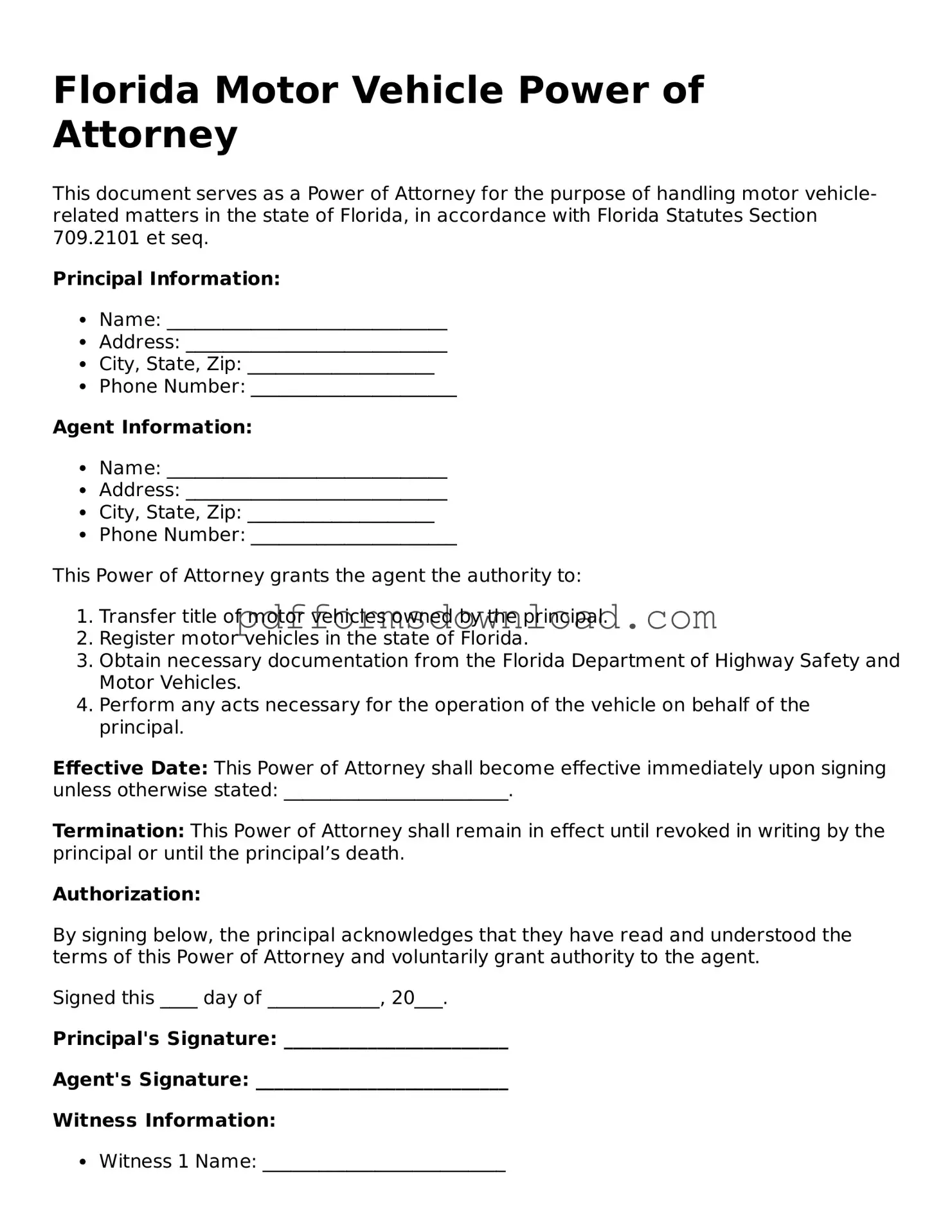Printable Florida Motor Vehicle Power of Attorney Form
The Florida Motor Vehicle Power of Attorney form allows you to appoint someone to handle specific vehicle-related tasks on your behalf. This can include signing documents, transferring titles, and dealing with the Department of Motor Vehicles. If you need to grant these powers, consider filling out the form by clicking the button below.
Make This Document Now

Printable Florida Motor Vehicle Power of Attorney Form
Make This Document Now

Make This Document Now
or
Free PDF File
Your form is almost ready
Complete your Motor Vehicle Power of Attorney online — edit, save, and download easily.